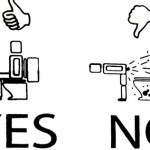Drinking Water Out Of Bathroom Sink: A Risky Practice
The convenience of a running sink in the bathroom might lead some individuals to consider drinking water directly from it. However, this seemingly simple act can pose significant health risks, making it strongly discouraged by health professionals and water safety experts. While bathroom sinks are primarily designed for handwashing and other hygiene-related tasks, the water flowing through them is not necessarily safe for consumption.
The water supply for the bathroom sink is connected to the same main water source as other fixtures in the house, including the kitchen sink. However, the plumbing system leading to the bathroom sink can harbor various contaminants that may not be present in the water reaching the kitchen sink. These contaminants can include:
1. Bacterial Contamination
Bacteria can accumulate in the bathroom sink's plumbing system due to the presence of moisture, humidity, and organic matter. Stagnant water in the pipes can provide a breeding ground for bacteria, especially if the sink is infrequently used. These bacteria can enter the water supply and pose a health risk if ingested.
2. Lead Contamination
Older homes may have lead pipes that connect to the bathroom sink. Lead leaching into the water supply can be hazardous, especially for children and pregnant women. While lead pipes are no longer commonly used in new construction, many existing homes still have them, creating a potential risk for lead contamination in the bathroom sink water.
3. Chemical Contamination
Chemicals used for cleaning the bathroom, such as disinfectants, soaps, and detergents, can inadvertently contaminate the water supply through the bathroom sink. These chemicals can be harmful if ingested and can contribute to various health issues ranging from skin irritations to more serious conditions.
In addition to the potential for contamination, the water flowing through the bathroom sink may not meet the standards set for drinking water. Drinking water quality is typically regulated by local authorities, which ensure that the water supplied to homes meets specific criteria for safety and purity. Bathroom sink water is not subjected to this rigorous monitoring and regulation, making it potentially less safe for consumption.
While there are filtration systems available for bathroom sinks, it is highly recommended to rely on the kitchen sink for drinking water. Kitchen sinks typically have dedicated plumbing systems and are often equipped with water filtration systems that remove contaminants and impurities, ensuring the water is safe for drinking. Additionally, kitchen taps are usually subjected to regular maintenance and cleaning, minimizing the risk of contamination.
In conclusion, drinking water directly out of a bathroom sink is a risky practice that should be avoided. The potential for contamination from bacteria, lead, and chemicals, combined with the lack of water quality regulation for bathroom sink water, makes it an unsafe source for drinking. It is essential to obtain drinking water from a reliable source, such as the kitchen sink, and to prioritize the use of bathroom sinks for their intended purpose: hygiene and sanitation.

Young Man Drink Tap Water By Mouth Out Of Sink In Bathroom With Lips And Tongue

Is It Safe To Drink Bathroom Sink Water

Is Bathroom Sink Water Safe To Drink Find Out Now Upgradedhome Com
Drinking Water From Your Bathroom Could Be Bad For Health
.png?strip=all)
People Are Only Just Discovering Why You Shouldn T Drink Water From The Bathroom Tap

Is Bathroom Sink Water Safe To Drink Get The Facts Here

Is Bathroom Water Safe To Drink Victoriaplum Com
Why Are People Reluctant To Drink The Tap Water In Us Hotel Rooms Quora
How To Tell If Water Is Safe Drink Or Contaminated
Why You Should Never Drink Tap Water In This Particular House
Related Posts







